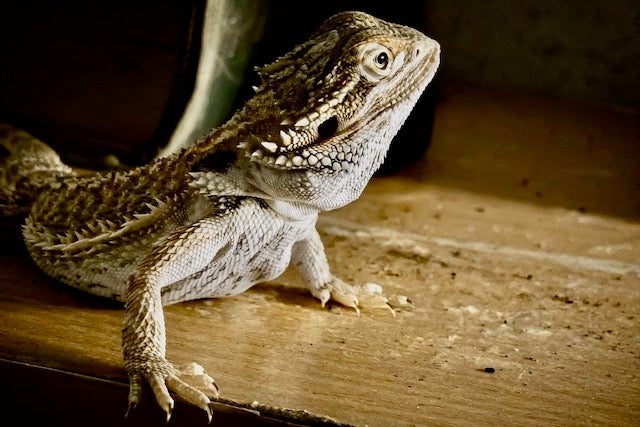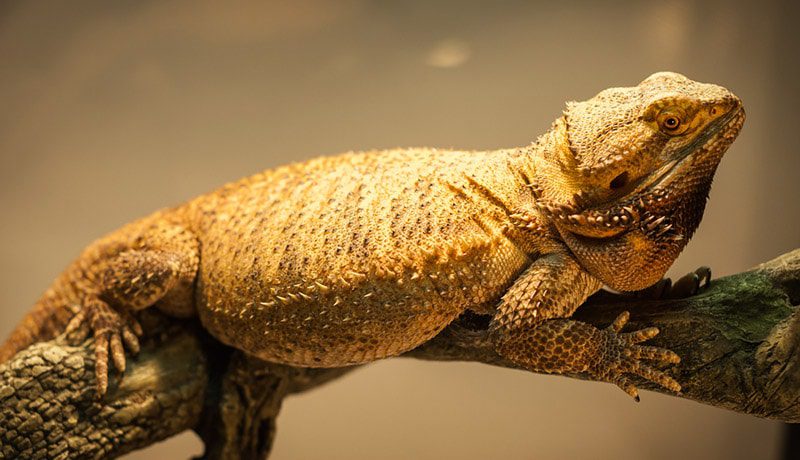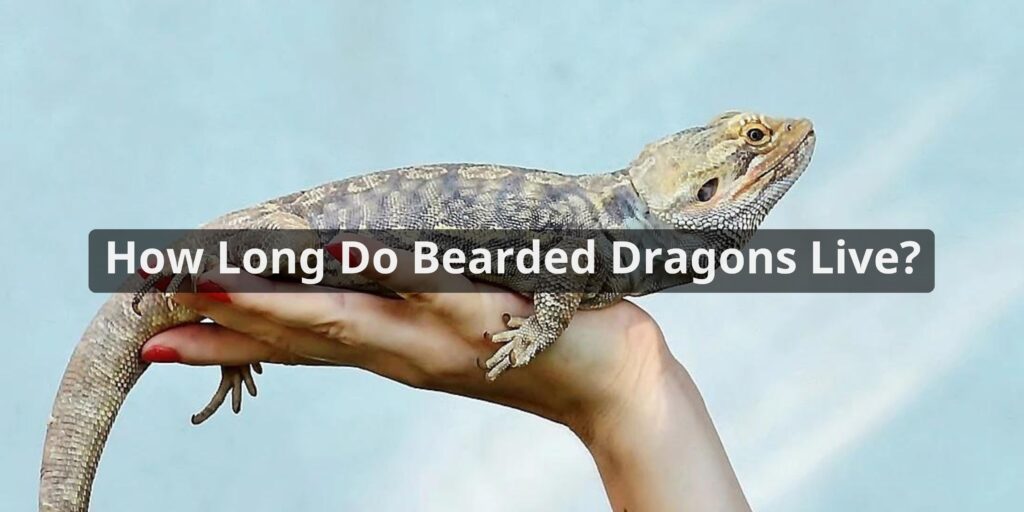Bearded dragons are popular pet lizards known for their docile nature, easy care requirements, and endearing personalities. A common question many bearded dragon owners have is “how long do bearded dragon live?” Understanding their lifespan and factors that affect it can help you provide the best care for your bearded dragon.
Typical Lifespan

On average, bearded dragons live between 5-10 years when kept as pets. With proper care and husbandry, some may even live up to 12-14 years old. The oldest recorded bearded dragon was 18 years old.
Here are some key factors that determine the lifespan of a bearded dragon:
Genetics
A bearded dragon’s genetics plays a big role in determining their lifespan. Some bloodlines and morphs tend to be hardier and live longer than others. Purchasing your bearded dragon from a reputable breeder can increase the chances of getting one with good genetics.
Husbandry
Proper husbandry is crucial for a long, healthy life. This includes providing an appropriate sized enclosure, proper heating and lighting, a wholesome diet, and general cleanliness and hygiene. Neglecting their basic care needs can lead to health issues that shorten their life.
Health and Veterinary Care
Like other pets, bearded dragons require regular veterinary checkups to screen for any underlying health issues. Illnesses caught early and treated properly give them the best chance of a normal lifespan. Have a trusted exotic vet who is knowledgeable about bearded dragons.
Age When Acquired
Bearded dragons generally live longest when acquired as juveniles or subadults less than 1 year old. Older bearded dragons may have preexisting conditions that limit their remaining years. Babies require more specialized care though.
Factors That Reduce Lifespan
While a healthy, well-cared for bearded dragon can live 10+ years, there are some factors that may reduce their lifespan:
Improper Diet
Poor diet is a major contributor to health problems in bearded dragons. Diets low in calcium can cause metabolic bone disease. Diets high in protein can also cause gout. Providing a balanced, vegetable-based diet is key.
Dehydration
Dehydration can quickly become life-threatening for bearded dragons. Ensure fresh water is always available. Some bearded dragons may need soaks if not drinking enough. Watch for signs of dehydration like sunken eyes and skin.
Overweight/Obesity
Excess weight stresses the body, especially the liver. Obese bearded dragons are prone to fatty liver disease and other issues. Prevent obesity by feeding proper portions and vegetables.
Accidents and Injuries
Bearded dragons can sustain injuries from falls or accidents in their enclosures. Severe injuries may be fatal if untreated. Supervise children around bearded dragons and provide safe housing.
Parasites
Intestinal parasites like coccidia and pinworms can infest bearded dragons and sap their energy and nutrition. Annual fecals screens by a vet can detect parasites early.
Egg-Laying Complications
Female bearded dragons are vulnerable to dystocia (egg-binding) or calcium deficiency from frequent egg laying. Spaying females or limiting breeding helps avoid this. Calcium supplements are a must.
Maximizing Your Bearded Dragon’s Lifespan

Here are some tips to help ensure your bearded dragon lives a long, healthy life:
- Purchase from a responsible breeder, avoid pet stores.
- Perform regular vet checkups and address health issues promptly.
- Feed a varied diet high in leafy greens, vegetables, some insects and calcium.
- Maintain proper temperatures and lighting – warm basking area and UVB.
- Give them opportunity to exercise outside enclosure daily.
- Keep enclosure clean and disinfected; spot clean feces daily.
- Provide hide, climbing branches, and enrichment. Avoid small enclosures.
- Ensure fresh, clean water always available. Soak if not drinking enough.
- Limit breeding to preserve female health. Do not breed under 18 months old.
With attentive care, most pet bearded dragons can live happily for over a decade, some even longer! Following these tips can give your bearded dragon the best shot at a long, high quality life with you. Let their lifespan be a testament to your excellent care and bond with them.
Conclusion
The typical lifespan of a bearded dragon is 5-10 years, though some may reach 12-14 years or more with ideal genetics and care. Providing proper husbandry, nutrition, vet care, and avoiding common pitfalls are key to maximizing a bearded dragon’s lifespan. With dedication, these personable lizards can remain healthy companions for many years to come. Bearded dragon owners should learn their basic needs and commit to their lifetime care. The reward will be a long-lived friend exhibiting their endearing behaviors and trusting bond over the years.
FAQs About How Long Do Bearded Dragon Live
Are there common health issues that can impact a bearded dragon’s lifespan, and how can I prevent them?
Common health issues include metabolic bone disease, respiratory infections, and parasites. Prevent them through proper diet, UVB lighting, clean habitat, and quarantine for new reptiles.
What role does diet play in the lifespan of a bearded dragon, and what should I feed them for a longer life?
Diet is crucial; offer a variety of insects and vegetables. Avoid feeding high-phosphorus foods, and provide calcium and vitamin supplements to prevent nutritional deficiencies.
Do bearded dragons have different lifespans based on their gender?
Lifespans generally don’t differ significantly between genders. Proper care and genetics have a more significant impact on lifespan.
Can the quality of their habitat and enclosure affect how long bearded dragons live?
Yes, habitat quality directly affects lifespan. A well-maintained enclosure with proper lighting, heating, and cleanliness contributes to a longer, healthier life.
Are there age-related changes or considerations as bearded dragons grow older?
As bearded dragons age, they may become less active and require adjustments in diet and care. Regular vet visits become even more crucial to monitor their health.
How do I calculate the age of my bearded dragon, especially if it’s a rescue or adopted pet?
Age estimation can be challenging, but you can approximate it by assessing their size, weight, and any available history from previous owners or the rescue organization. A reptile veterinarian can also help estimate age based on physical characteristics.



